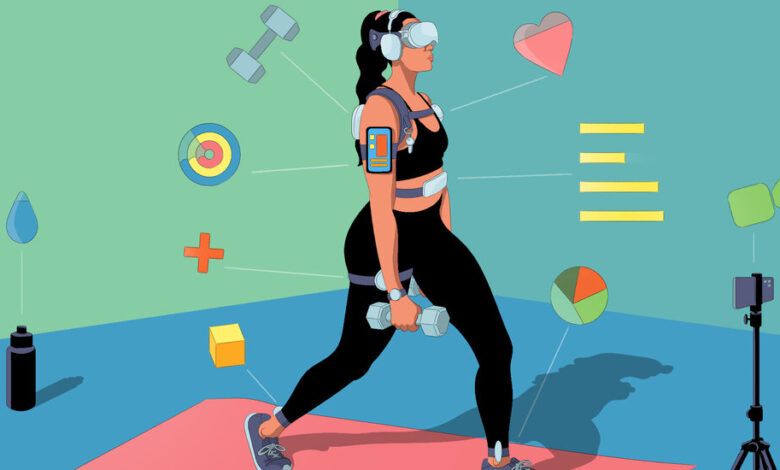Does Fitness Tracker Data Improve Your Health? What to Know About Wearables.

Not all data is good or helpful, doctors, exercise physiologists and coaches say, and having more data does not mean having a more effective workout. The real questions surround not the wearable, but the wearer.
What are wearables?
A wearable is any tracking device worn on your body that measures one or more bodily functions, whether it’s heart rate, sleep time, step count or respiration. Most, like those made by Fitbit, Garmin, Coros, Whoop and Oura, are not considered medical devices and are not regulated or evaluated by the Food and Drug Administrations. Indeed, recently, the F.D.A. warned consumers that wearable devices claiming to measure or estimate blood sugar without piercing the skin should not be used for diabetes management.
Regardless, many devices include metrics that are usually collected in a laboratory setting.
For instance, one measurement that can be useful for athletes is your VO2 max, the maximum amount of oxygen that your body can use during intense exercise. The number is usually determined in a lab by exercising at various intensities while wearing a mask that records oxygen consumption and carbon dioxide production. Wearables, however, claim to infer this number using an equation based on your heart rate, which should be taken with a grain of salt, experts said.
Other data, like step counts and distance traveled, are generally more accurate.
Can they motivate you to exercise more?
“Activity trackers are facilitators, not instigators, of behavior change,” said David R. Bassett, Jr. a professor emeritus of kinesiology, recreation and sport studies at the University of Tennessee in Knoxville.
In other words, the device alone will not make your workouts easier or improve your sleep cycles. But they can help you identify trends in your exercise regimen and track your progress if you are trying to improve.
Source link



